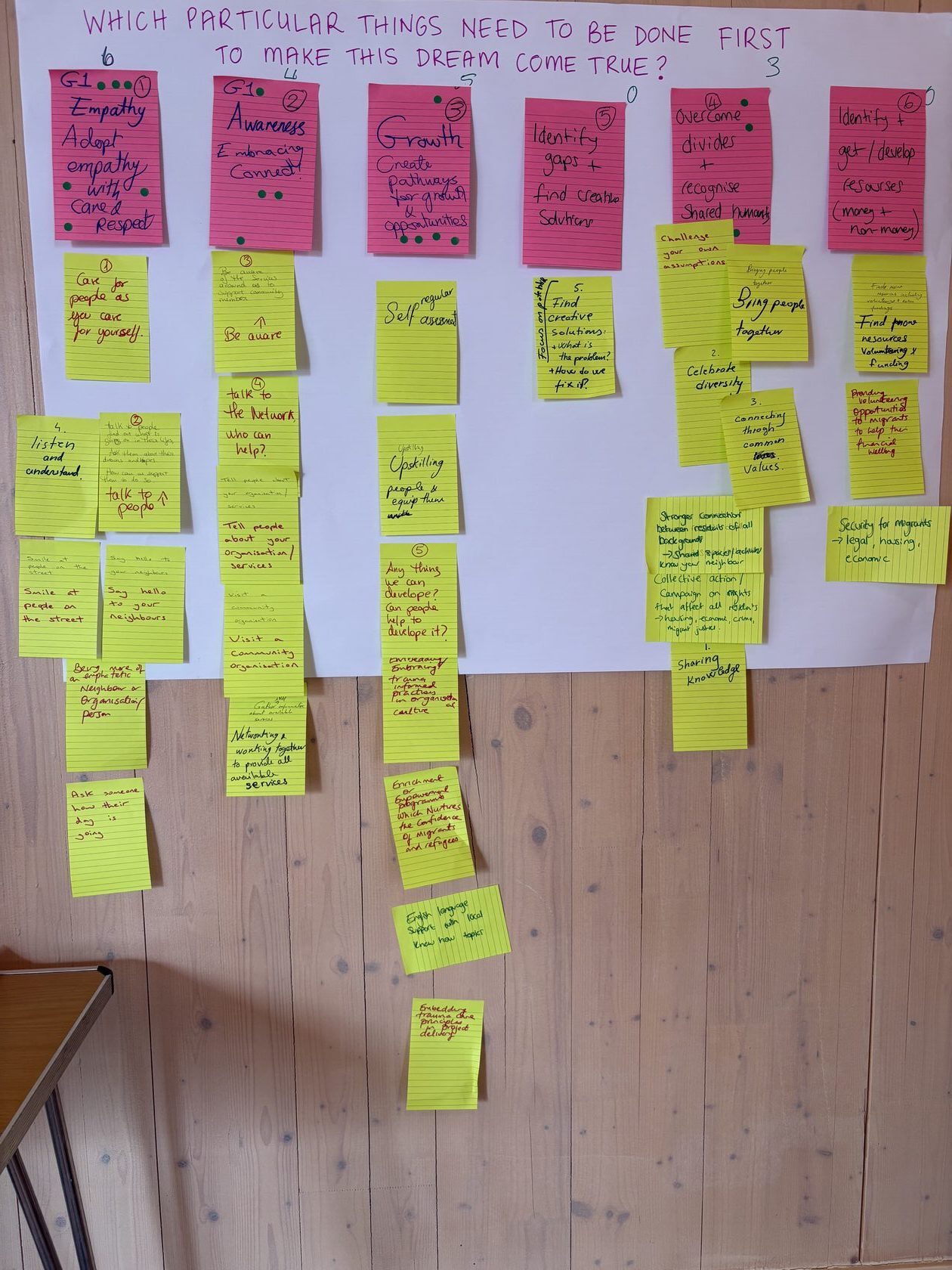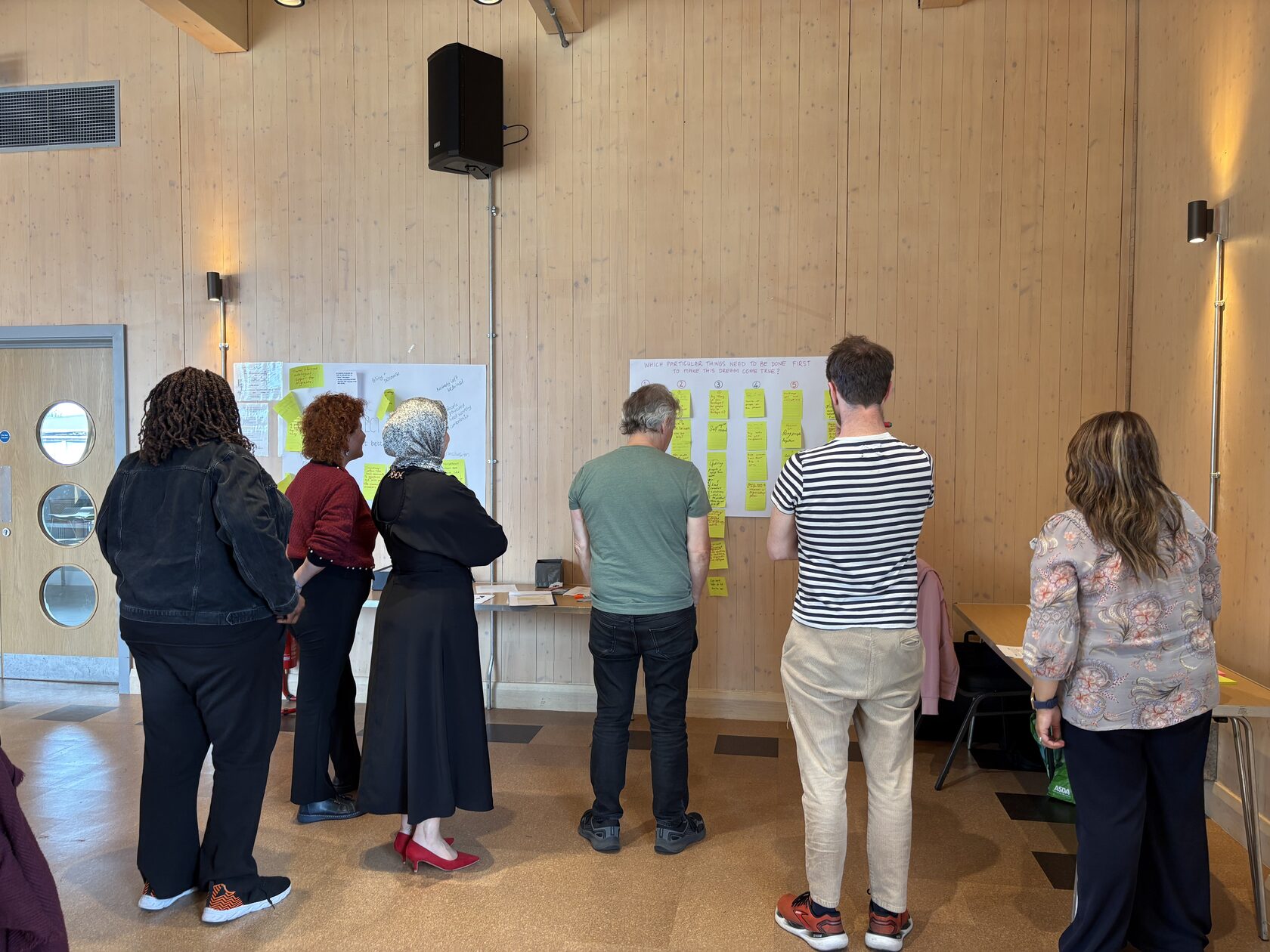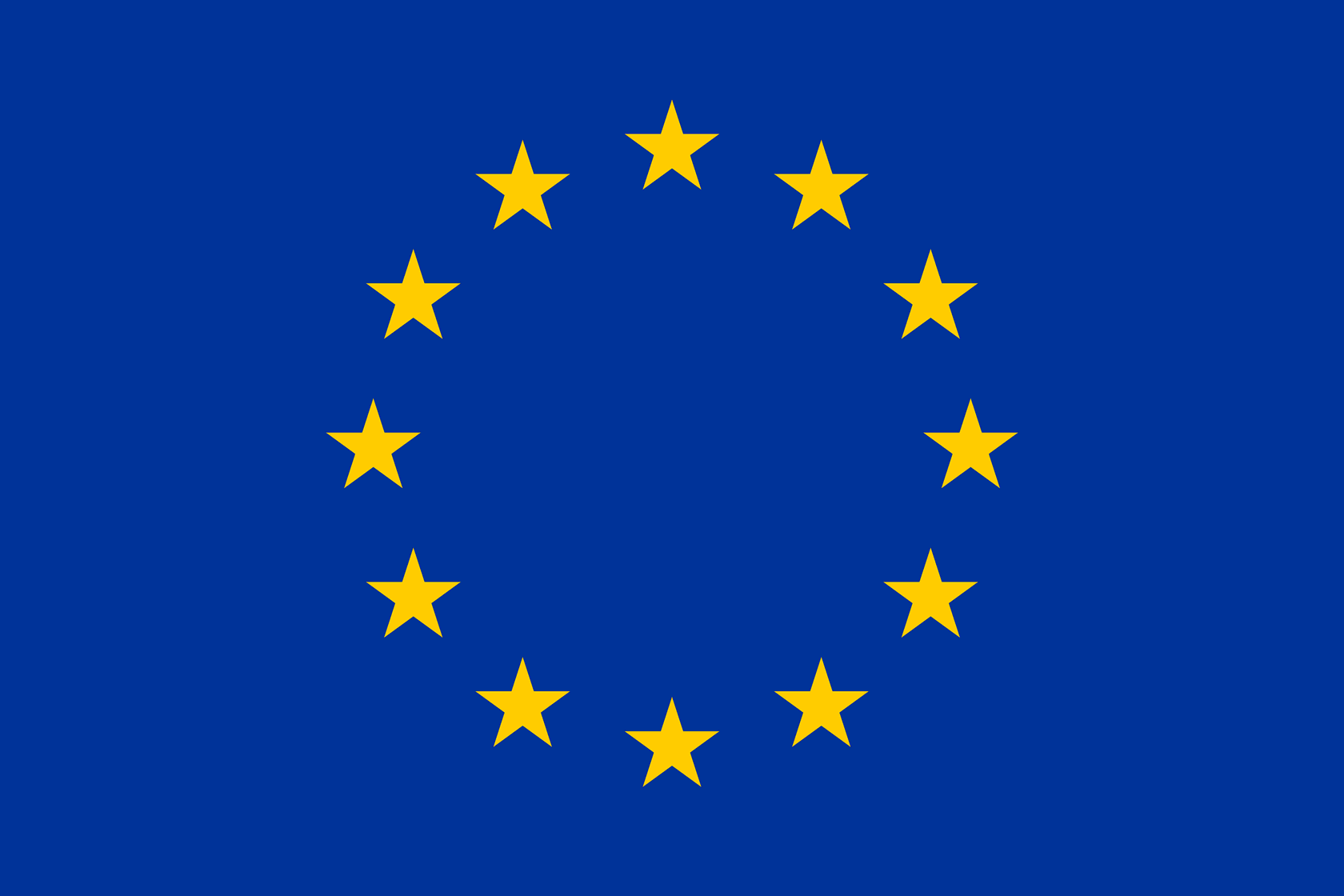Photo by Susanne Wessendorf.
Published: 21 May 2025
Text and photos by Tamlyn Monson.
On 20 May 2025, local organisations across Barking & Dagenham came together for the ReROOT Tools for Change workshop—a day of practical reflection and vision-building for members of the local Supporting Migrants Network.
Participants began the day by imagining a “perfect future” for migrant residents in the borough: a welcoming place where neighbours help one another, with practical and accessible support, equality regardless of differences, supported by wider policies and discourse that no longer disadvantages migrant residents.
Published: 21 May 2025
Text and photos by Tamlyn Monson.
On 20 May 2025, local organisations across Barking & Dagenham came together for the ReROOT Tools for Change workshop—a day of practical reflection and vision-building for members of the local Supporting Migrants Network.
Participants began the day by imagining a “perfect future” for migrant residents in the borough: a welcoming place where neighbours help one another, with practical and accessible support, equality regardless of differences, supported by wider policies and discourse that no longer disadvantages migrant residents.
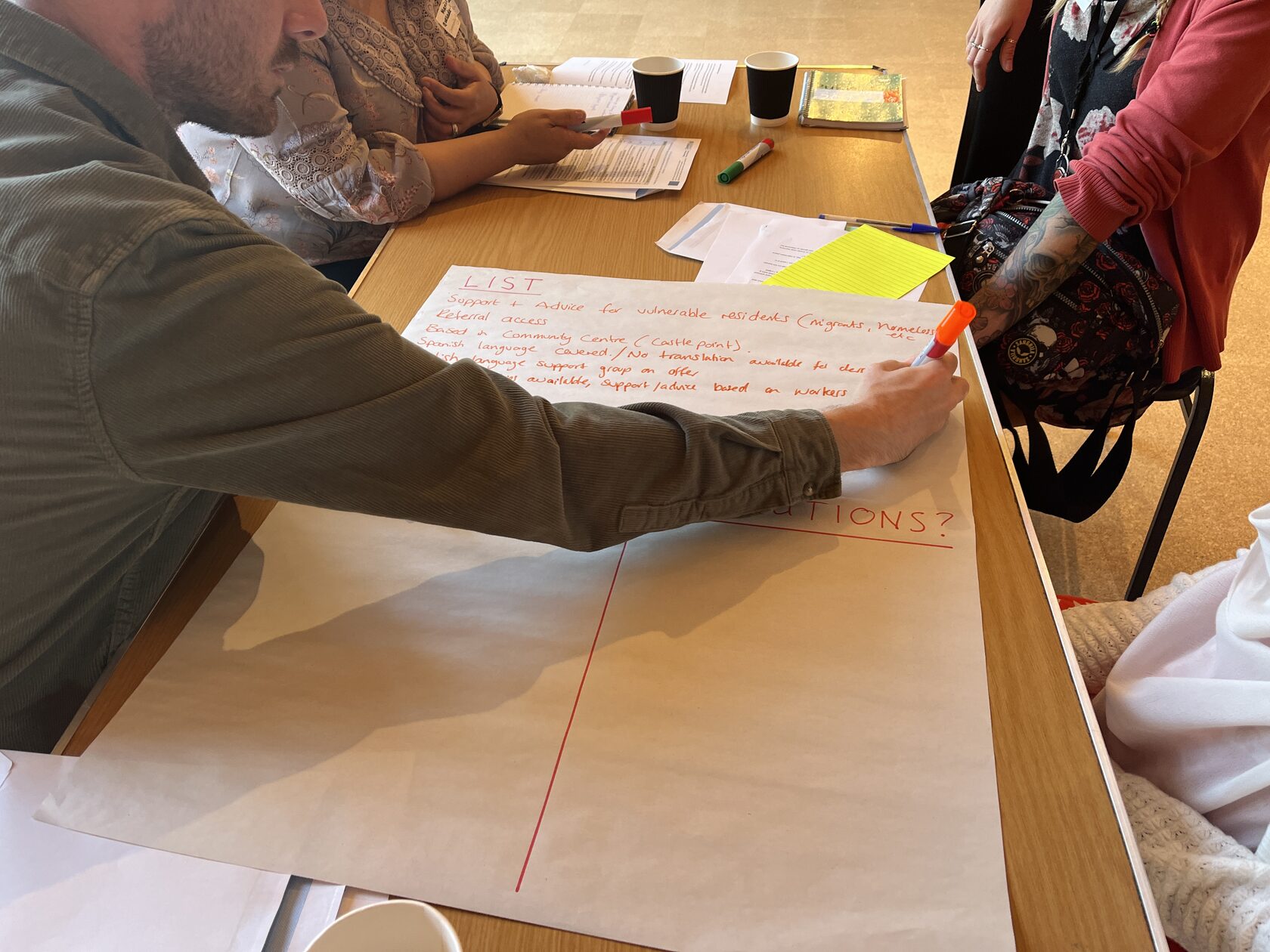
Next, we covered real-life barriers, based on the case study of Anghel, a migrant resident struggling to see a GP. His case prompted discussion about the hidden assumptions in service design—like digital access, confidence, or the ability to speak English—and how these often exclude people unintentionally. Participants then explored how to make their own services more accessible, and discussed concrete solutions already in place, from translated course leaflets to working with community partners for outreach.
The next exercise involved mapping out all the positive spaces local services offer in a typical week. The exercise struck members with the importance of making their services visible to each other – ‘it’s about joining those dots,’ as one participant said.
Using “circles of concern, control, and influence,” to close the morning session, attendees reflected on burnout, funding shortages, and systemic challenges. They found it useful to reflect on what could be influenced indirectly – such as campaigning about No Recourse to Public Funds policy or supporting people into work. “We often think we have less control than we really do, you can influence more than you think,” said one participant.
The next exercise involved mapping out all the positive spaces local services offer in a typical week. The exercise struck members with the importance of making their services visible to each other – ‘it’s about joining those dots,’ as one participant said.
Using “circles of concern, control, and influence,” to close the morning session, attendees reflected on burnout, funding shortages, and systemic challenges. They found it useful to reflect on what could be influenced indirectly – such as campaigning about No Recourse to Public Funds policy or supporting people into work. “We often think we have less control than we really do, you can influence more than you think,” said one participant.
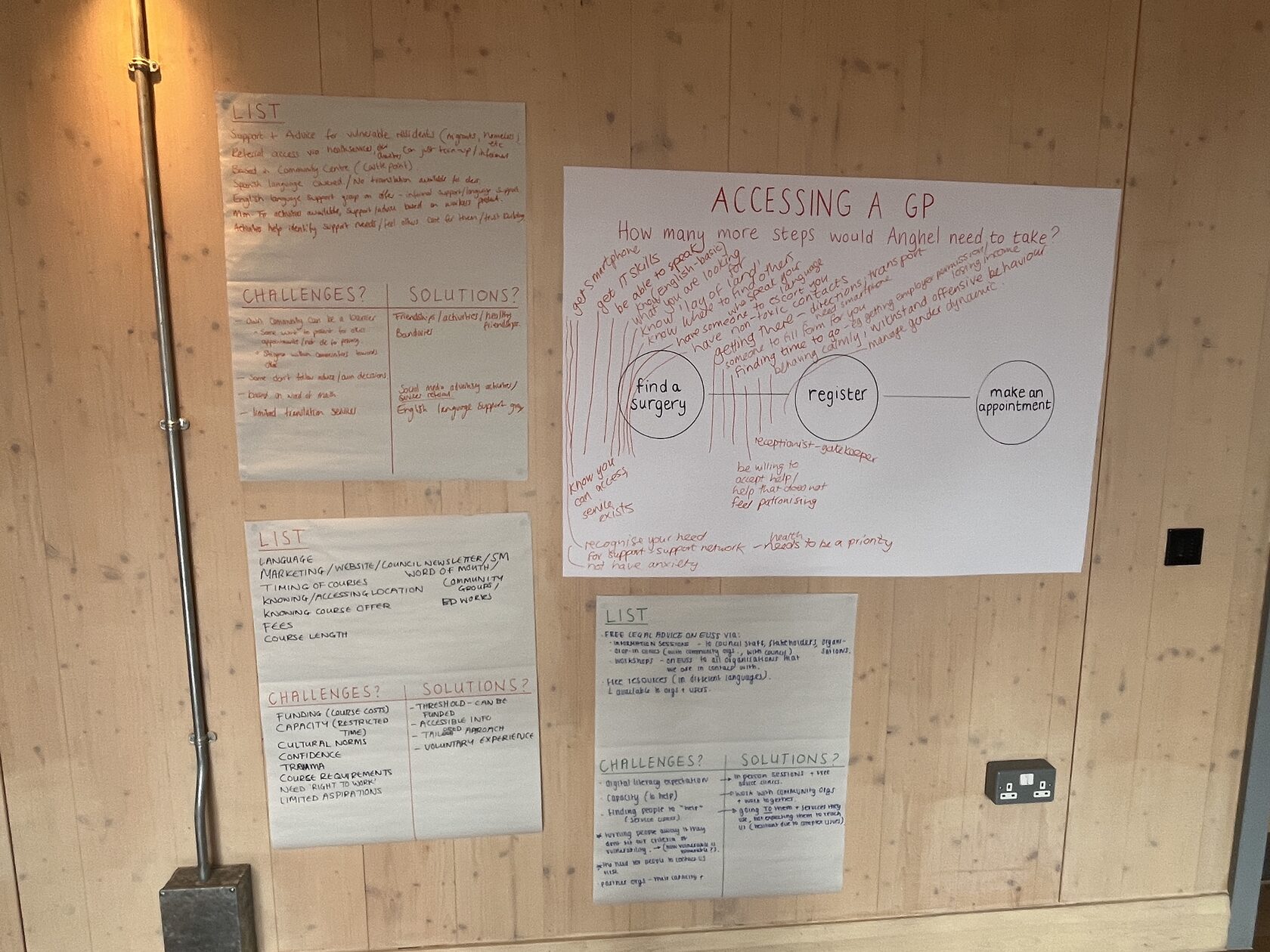
In the afternoon, the group developed their vision of a perfect future into a set of six objectives. A prioritisation exercise with stickers revealed that an empathic approach, creating pathways to growth and opportunities, and embracing connection, were the top priorities in the room.
After a discussion about promoting migrant voices and agency, the workshop closed with a reflection on what change is possible now. Ideas for new connecting activities came to the fore, both at individual and network level. So, however, did the realisation that under resource constraints, continuing with existing work is also powerful. As one participant said, “Today helped people realise what they are already doing and that that is valuable, so keep doing what you’re doing!”
After a discussion about promoting migrant voices and agency, the workshop closed with a reflection on what change is possible now. Ideas for new connecting activities came to the fore, both at individual and network level. So, however, did the realisation that under resource constraints, continuing with existing work is also powerful. As one participant said, “Today helped people realise what they are already doing and that that is valuable, so keep doing what you’re doing!”
